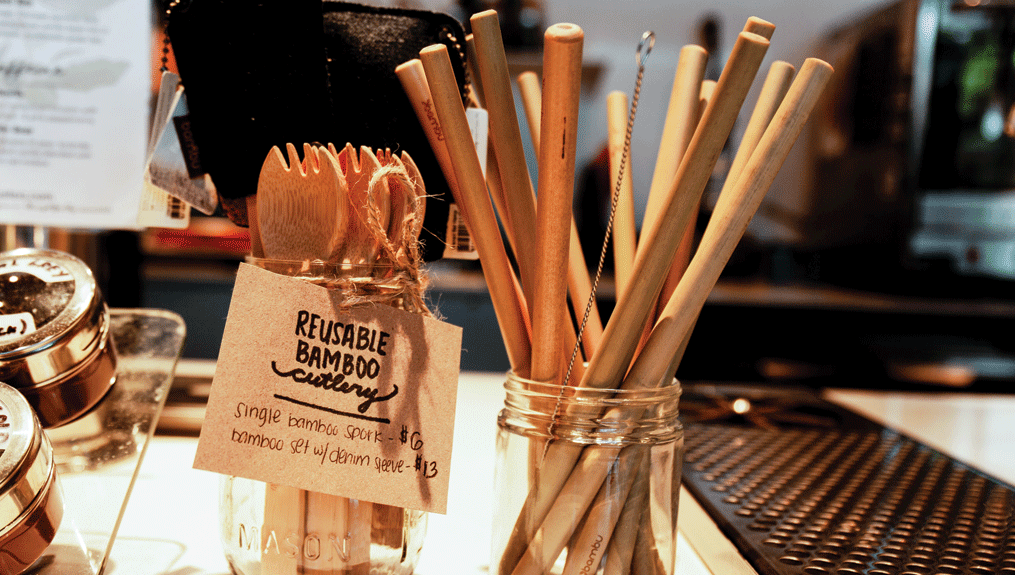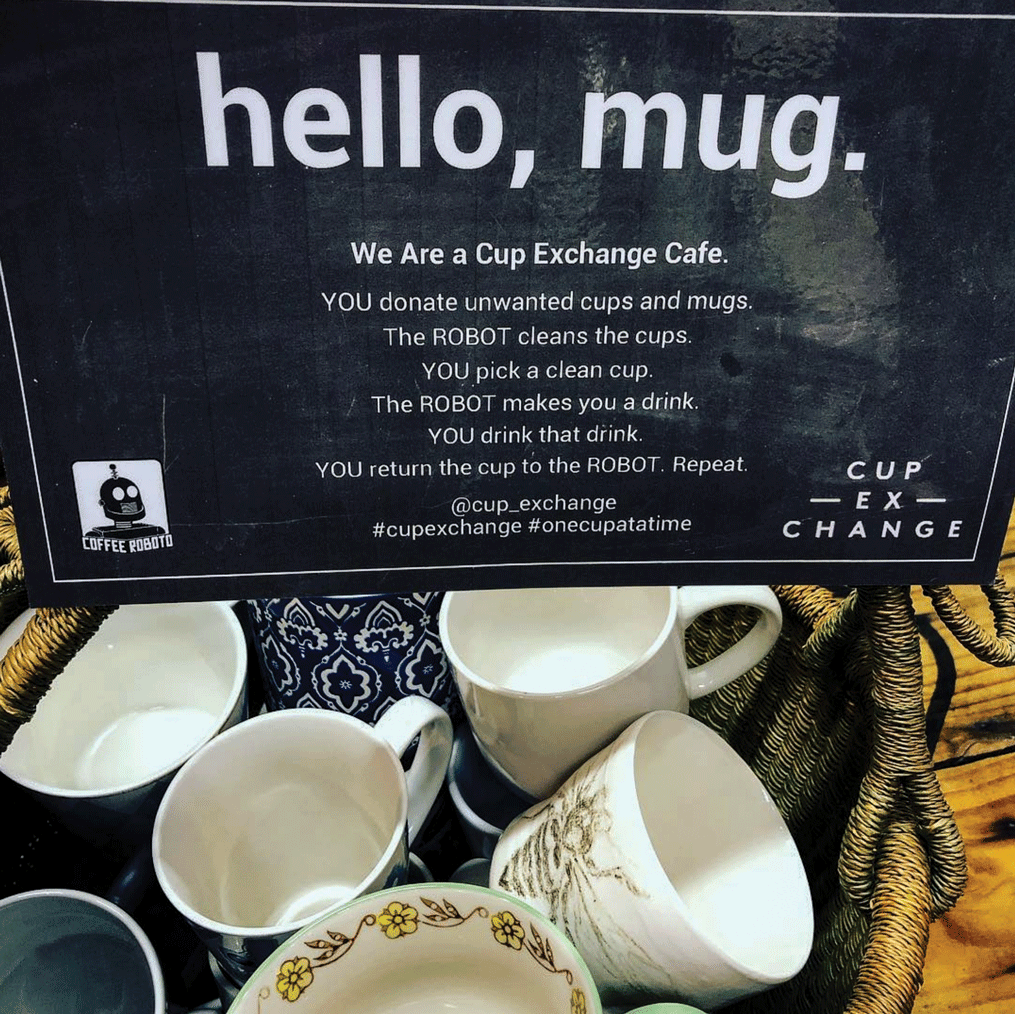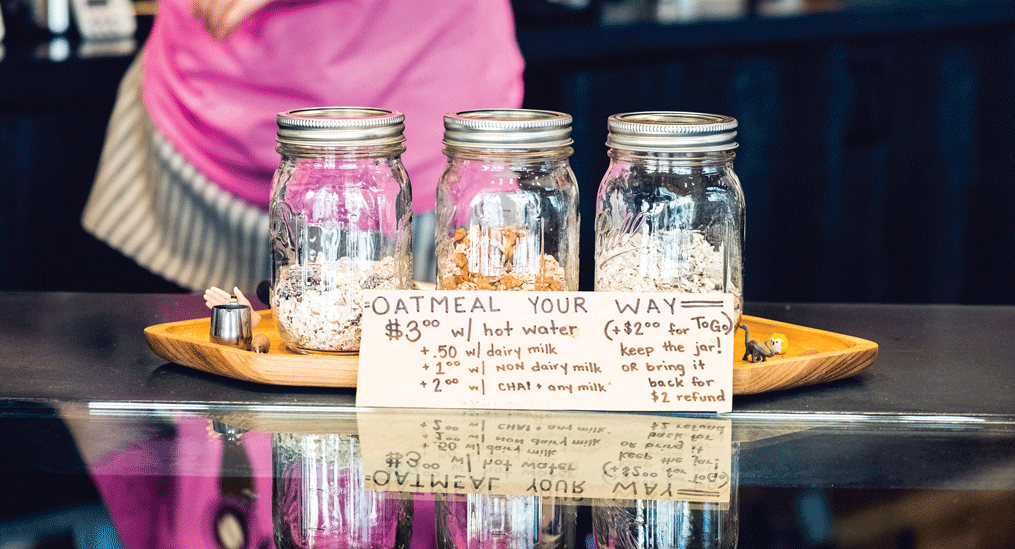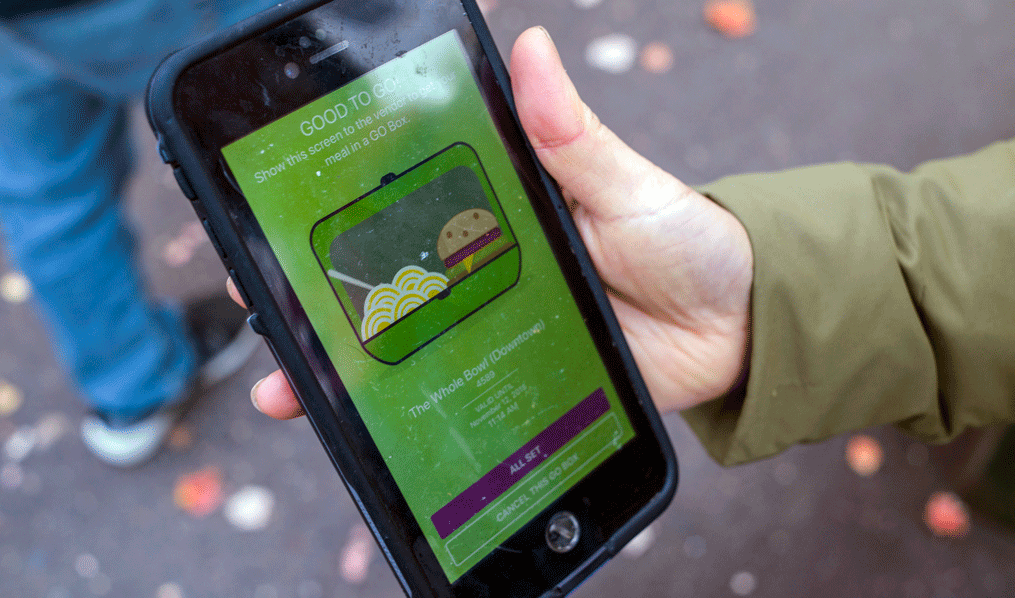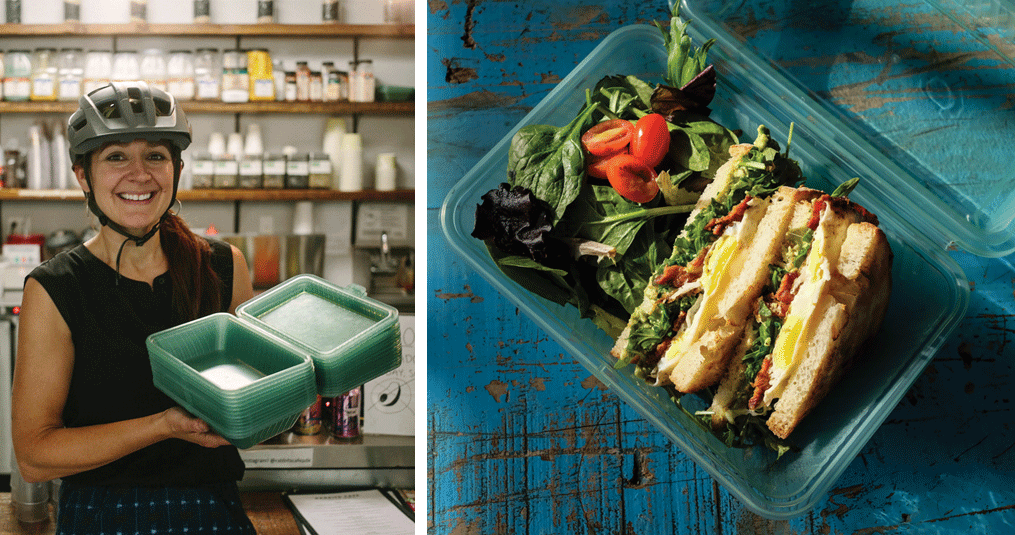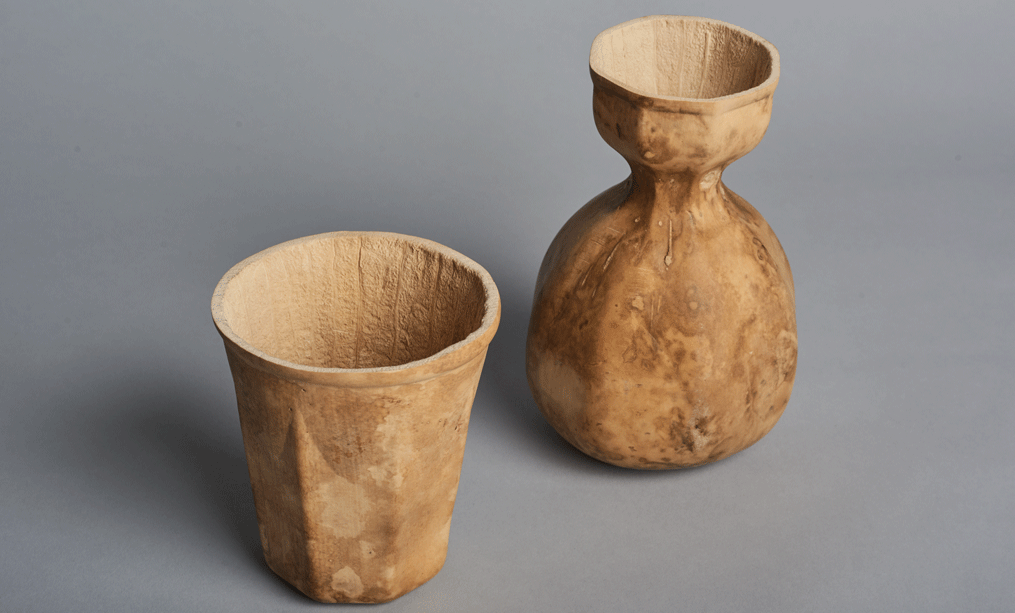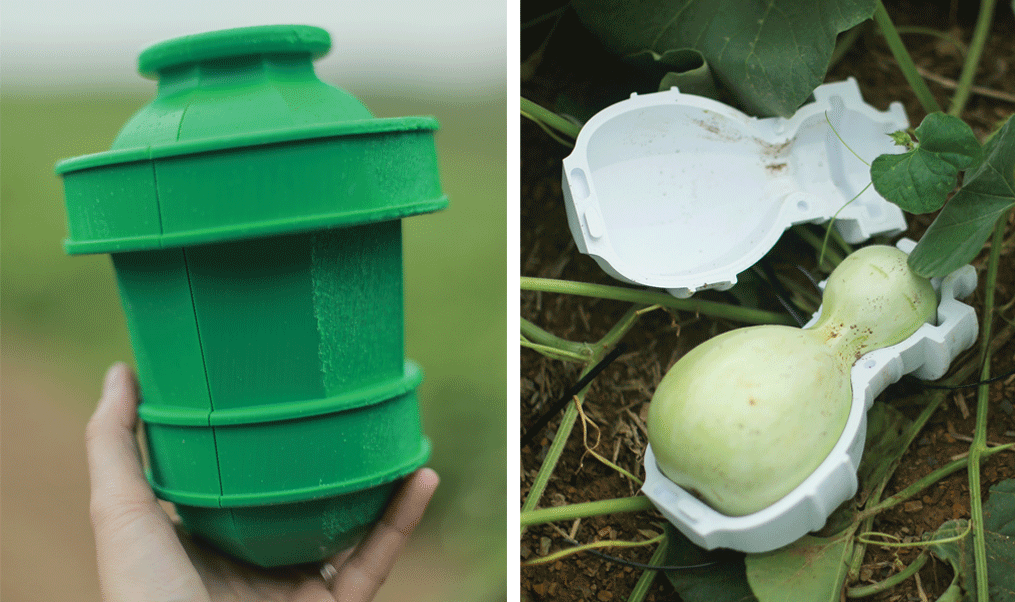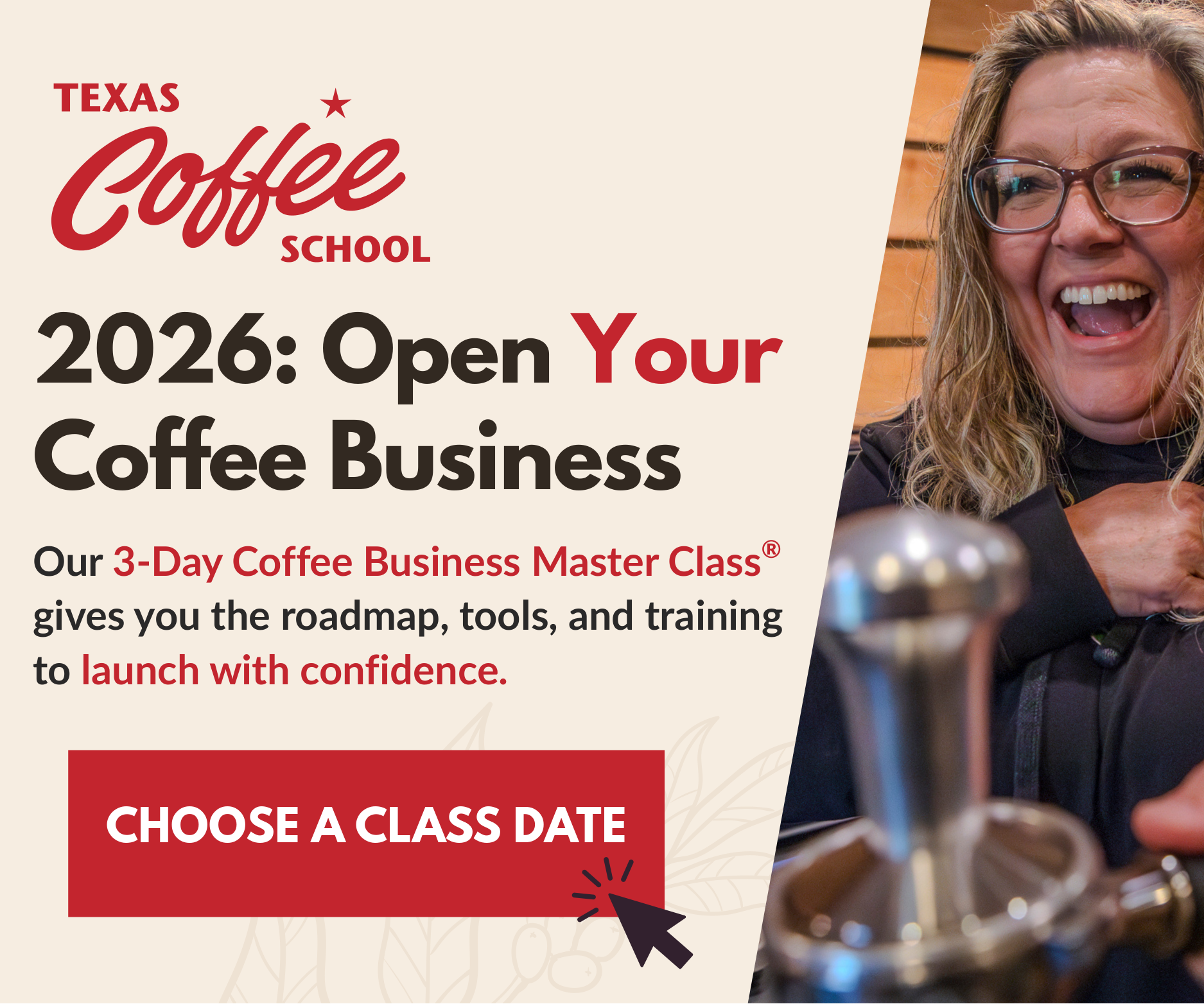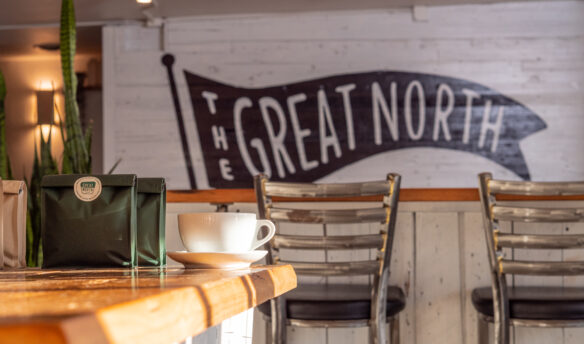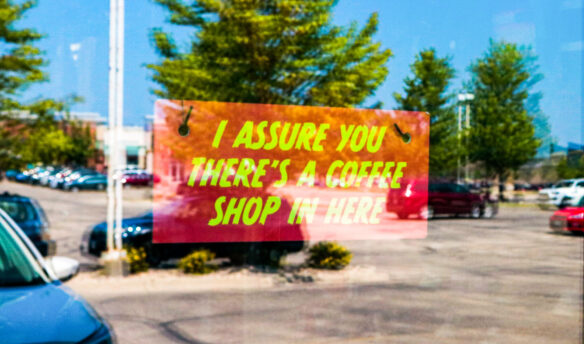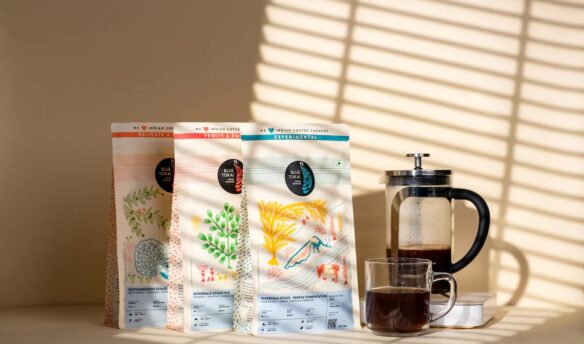Every year, billions of single-use coffee cups end up in landfills across the country so that Americans can enjoy their coffee on the go.
It’s critical to make single-use items available and accessible for those who need them, and cafes can simultaneously work to offset their reliance on single-use materials. That often means returning to tried-and-true standards, like offering consumers the option of reusable ceramic mugs, or brand-new options like reusable plastic ware.
“Single-use coffee cups and all the accoutrements that go with them just end up as waste here because none of them are recyclable at any recycling facilities near us,” says Young Bennett. Bennett and his wife, Michal, co-own Coffee Roboto, a mobile coffee business based in Coeur d’Alene, Idaho. “We want to challenge people to think outside the box in terms of their consumption.”
Cup Lending Programs
This past January, the Bennetts switched away from the single-use paper cups they had been using for three years in favor of something different: ceramic mugs donated by customers.
Inspired by a cup exchange program they learned about in Australia, the couple launched a spirited campaign through their social media channels asking for donations of used mugs. Customers who brought in mugs earned a drink at half price.
They now have roughly 100 mugs in their collection, which customers can cull through and pick from, depending on their mood that day. The couple bike a selection of their mugs in their mobile coffee stand to stops around the city.
“It’s a lot of fun for people to look through the mugs and pick one out. We have all sorts of crazy, fun mugs, from destinations like Disneyland and Hawaii to cool handmade ones,” says Michal.
Clients can return the mugs after use for sanitization and re-entry into Coffee Roboto’s lending supply, or they can keep them.
“We created excitement for the idea by posting videos of our own shelves at home,” says Young. “Everyone has so many mugs already. The idea is, why not clean out your cabinets and make them available to others? We wanted to create some energy and fun around what we were trying to do, rather than presenting it to our customers as ‘We’re not doing single-use cups anymore. Deal with it.’”
For customers who need a travel mug option, Coffee Roboto offers its Blue Card program, which works like a loyalty program to encourage customers to remember to bring and use their reusable mugs. Customers can purchase a KeepCup travel mug for $16. After ten uses, they earn back $7.50 in cash, which they can opt to keep or donate to Coffee Kids, a charity that supports the next generation of coffee farmers (the remaining $8.50 covers the Bennetts’ cost on the tumbler).
Mason Jars
A host of cafés are finding that one of the simplest ways to reduce single-use waste is to return to time-tested reusable containers—case in point: the mason jar, ideal for serving food to go.
At London’s Bean & Wheat, customers who purchase one of the shop’s mason jar foodstuffs—think chicken butter or homemade hummus—and return it for reuse earn a free coffee.
In Evergreen, Colorado, Wanderlust Market owner Beki Fiala offers a complete line of mason jar meals, including specialties such as Asian Sesame Ginger Chicken Salad, to complement her menu of international coffees and teas. Customers earn $0.50 off their next purchase for every mason jar they return.
In Portland, Oregon, customers can snag custom oatmeal breakfast blends served ready-to-eat in mason jars at Nossa Familia Coffee for the cost of the oatmeal, plus a $2 deposit to cover the cost of the jar and lid. When they return the jar, they earn their deposit back.
“We’ve gotten good reviews on the program. People like that they’re avoiding all that waste,” says Karen Lickteig, Nossa Familia’s marketing and sustainability director. “It works because there’s not a huge pressure to return the mason jar. Customers can keep it and reuse it themselves if they want. But they can return it if they do come back. It’s been a great part of our zero-waste approach.”
Still, it’s essential to know your customer base before trying to go all-in on a mason jar service model, advised Lenny Howes, who owns Ebon Coffee Collective in Billings, Montana, with his wife, Jaxi. The couple opened their shop in 2016, intending to serve coffee exclusively in mason jars.
“We ordered a whole bunch of different sizes [of jars] and just considered it part of our startup costs,” says Howes. “We thought we’d try it and not even have disposable cups in the store.”
That model lasted for about 20 months before Ebon pivoted to single-use disposable cups as the cafe’s primary delivery method.
“There were all these logistical challenges,” says Howes. “It’s hard to motivate people to do the right thing and return the jars in a timely manner,” says Howes. “There were always too many jars out compared to what we had in-house. And some people definitely went elsewhere [for their coffee] because they didn’t want to handle dealing with a glass jar.”
On the flip side, Ebon attracted a dedicated band of customers passionate about sustainability, who are still bringing their mason jars for refills, even though single-use cups are now available. Howes feels the mason jar model could have worked in other regions of the country, where sustainability is more front-of-mind, he said.
New Models
Back in Portland, a subscription service called GO Box is proving there is customer demand for sustainable to-go options, especially in large urban areas.
The app-based service connects takeout customers with a network of around 90 GO Box vendors who can serve food in reusable plastic containers. After use, the customer can return the boxes at one of roughly 40 drop-off locations around the city, which are also noted on the app, for sanitization and reuse. To incentivize timely returns, customers can only have one box out for use at a time.
Customers pay a $21.95 annual fee or a $3.95 monthly subscription to have their takeout meals (still at their usual price) provided in a GO Box, which are made by GET Enterprises using BPA-free polypropylene #5.
The boxes can withstand washing in GO Box’s industrial kitchen up to 1,000 times. When the boxes are ready to be retired, they are recycled, so the entire process is waste-free.
Restaurant vendors pay a subscription fee to participate as well, to cover the cost and delivery of the GO Boxes.
“Trash is a complex issue. And so our system is designed to encourage that level of awareness—that everyone has a role to play,” says GO Box CEO Jocelyn Gaudi Quarrell. “It’s a problem that we’re all going to have to contribute to solving together.”
In addition to Portland, GO Box already operates in San Francisco and has plans for rollout in central Oregon and the East Coast later this year.
“We’re trying to provide a turnkey solution of hardware and software for food vendors and café managers that is really easy for people both behind the counter and in front of the counter to use,” says Quarrell.
This spring, the company also launches its newest product: the GO Box reusable coffee cup, which will roll out for Earth Day in late April.
“We spent a lot of time researching cups,” says Quarrell. “We landed on a plastic-free, reusable bamboo and resin fiber cup made by Ecoffee Cup in the United Kingdom.”
Participating vendors can choose to offer GO Box’s reusable boxes, its reusable coffee cups, or both.
“I’m very excited about the cups because I think they might be an easier avenue to onboard more folks into reuse than even our food containers,” says Quarrell. “It’s going to be a great opportunity to scale our reuse systems into large-scale public awareness and usage.”
Growing the Next-Gen Coffee Cup
The future of sustainable cups may come from the garden. CRÈME Design, an architecture and design firm founded by Jun Aizaki, is working on a prototype coffee cup grown from gourds.
The process uses 3D-printed molds to grow the gourds into functional shapes, creating sleek, sustainable cups that are completely biodegradable.
The cups stemmed from CRÈME’s entry in the 2018 NextGen Cup Challenge and have already gained international interest, including from the MoMA Design Store, thanks to their chic aesthetic, says Tania Kaufmann, CRÈME’s business manager.
“The interest has been fantastic, almost overwhelming,” she says. For now, the cups are still in the design phase, but the company eventually hopes to make them available for everyday use. “This product comes from the earth and goes back, and so there’s literally zero leftover waste,” says Kaufmann.
Cover photo courtesy of Nossa Familia Coffee
This article was originally published on April 30, 2019, and has been updated to reflect Fresh Cup’s current editorial standards.

